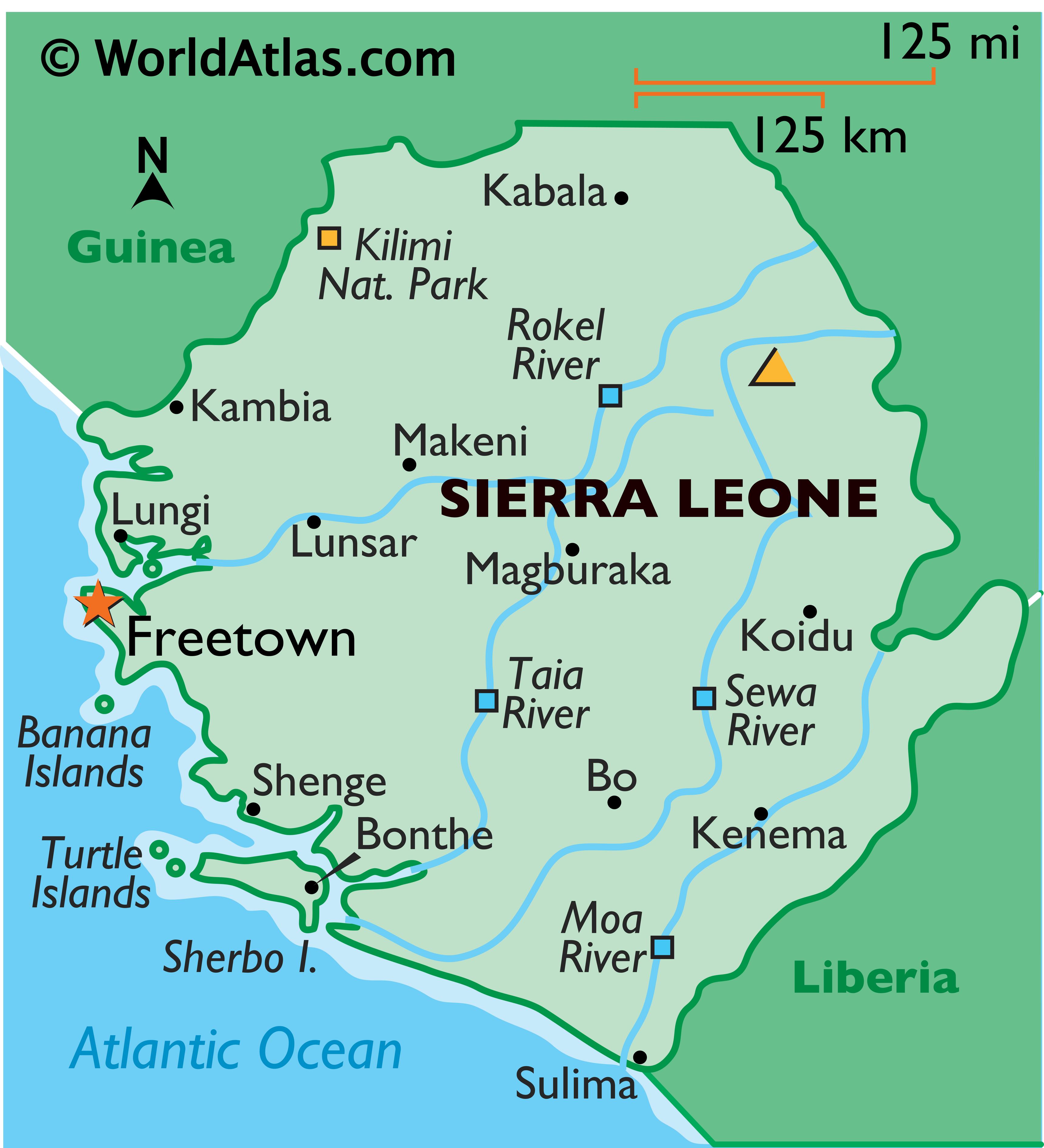
A momentous epoch has unfolded in Sierra Leone, as the aftermath of an abortive coup has given rise to a moment of great significance: the pardoning of 352 inmates on the inaugural day of the New Year. This executive action, ostensibly stemming from a pursuit of national reconciliation and an unwavering commitment to post-coup stability, represents a nuanced rejoinder to a convoluted political crisis.
Sierra Leone News Bulletin: Coup Fiasco Sends Shockwaves Across the Nation 
The ill-fated coup attempt that transpired in November sent seismic tremors through Sierra Leone, casting doubt upon the political equilibrium of the nation. The repercussions of the tumultuous events persist, with the latest maneuver by the leadership to extend clemency to a substantial cohort of detainees.
Executive Clemency Granted: A Symbolic Gesture Towards Cohesion
At the break of the New Year, Sierra Leone’s paramount figure made a proclamation bearing profound ramifications for the destiny of the nation – the exoneration of 352 inmates. This symbolic gesture, strategically unveiled on New Year’s day, is pregnant with allegory, signifying an aspiration to commence anew and construct a harmonious, reconciled society.
Profiles of the Absolved: From Lyricists to Civilians
The 352 individuals bestowed with this historic absolution epitomize a cross-section of Sierra Leonean society. Among their ranks is the renowned lyricist Alhaji, serving as a poignant reminder that the repercussions of the foiled coup extend far and wide. The inclusion of those involuntarily released during the coup introduces an additional stratum of intricacy, underscoring the imperative for a nuanced paradigm in dispensing justice and fostering reconciliation.
Civic Duty: A Distinct Aspect of Amnesty

A salient facet of this wholesale amnesty is the recognition of civic responsibility demonstrated by select detainees. Despite being forcefully emancipated during the pandemonium of the failed coup, some individuals willingly returned to incarceration. This demonstration of civic duty imparts a distinctive dimension to the narrative, spotlighting the tenacity and dedication of citizens to the stability of the nation.
National Reconciliation: Charting the Path Forward
Beyond the immediate act of clemency, Sierra Leone’s leadership has delineated an encompassing strategy for national reconciliation. This holistic approach encompasses redressing the root causes of the political unrest, fostering societal reintegration, and engaging in dialogue to ensure a more stable and unified nation.
Public Response: A Confluence of Expectation and Unease
The pronouncement of the inmate exoneration has elicited a spectrum of reactions among the Sierra Leonean populace. While some perceive it as a positive stride toward healing and unity, others voice apprehensions regarding the potential hurdles in reintegrating individuals associated with the failed coup. The government confronts the delicate task of managing this diverse array of sentiments and implementing measures to instill trust and understanding among the citizenry.
Global Perspectives: A Vigilant International Community
Sierra Leone’s endeavors to reinstate stability post-coup are not transpiring in isolation; they are vigilantly scrutinized by the global community. Regional and international stakeholders comprehend the significance of a pacific and all-encompassing resolution to the political crisis, cognizant that Sierra Leone’s stability is not merely pivotal for its denizens but also for the broader equilibrium of the West African region.
Sierra Leone’s Amnesty in Global Context
A comparative scrutiny of Sierra Leone’s amnesty in the context of analogous post-crisis scenarios worldwide furnishes invaluable insights. This exploration casts illumination on efficacious strategies for post-crisis reconciliation, contributing to the ongoing dialectic on transitional justice and peacebuilding.
Challenges and Prospects Ahead: Striking a Balance Between Justice and Reconciliation
As Sierra Leone navigates the labyrinthine aftermath of the foiled coup, challenges and opportunities materialize on the trajectory toward stability. Striking a harmonious balance between justice, reconciliation, and the imperatives of a variegated populace necessitates meticulous consideration and sagacious planning. The government’s adept handling of these challenges will determine the nation’s course in the ensuing months.
A Decisive Juncture for Sierra Leone

The resolution to pardon 352 inmates subsequent to the failed coup constitutes a watershed moment in Sierra Leone’s annals. It underscores an unwavering dedication to convalescence, reconciliation, and the restitution of stability. The multifaceted tapestry of the post-coup scenario, encompassing the diverse profiles of the absolved detainees and the exhibition of civic responsibility, introduces strata of complexity to Sierra Leone’s odyssey towards unity. As the nation grapples with the vicissitudes ahead, the international community observes with keen interest, recognizing the pivotal importance of Sierra Leone’s stability for the broader West African region. The New Year’s day amnesty marks a pivotal juncture, and Sierra Leone stands at the crossroads of shaping its destiny.











Comments 1